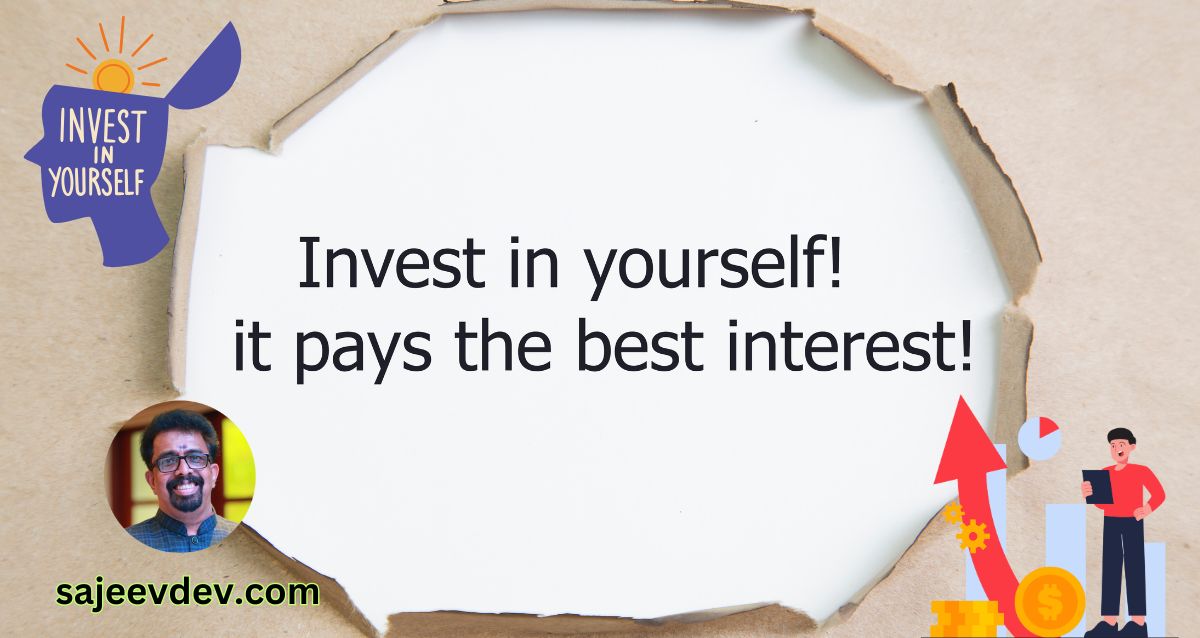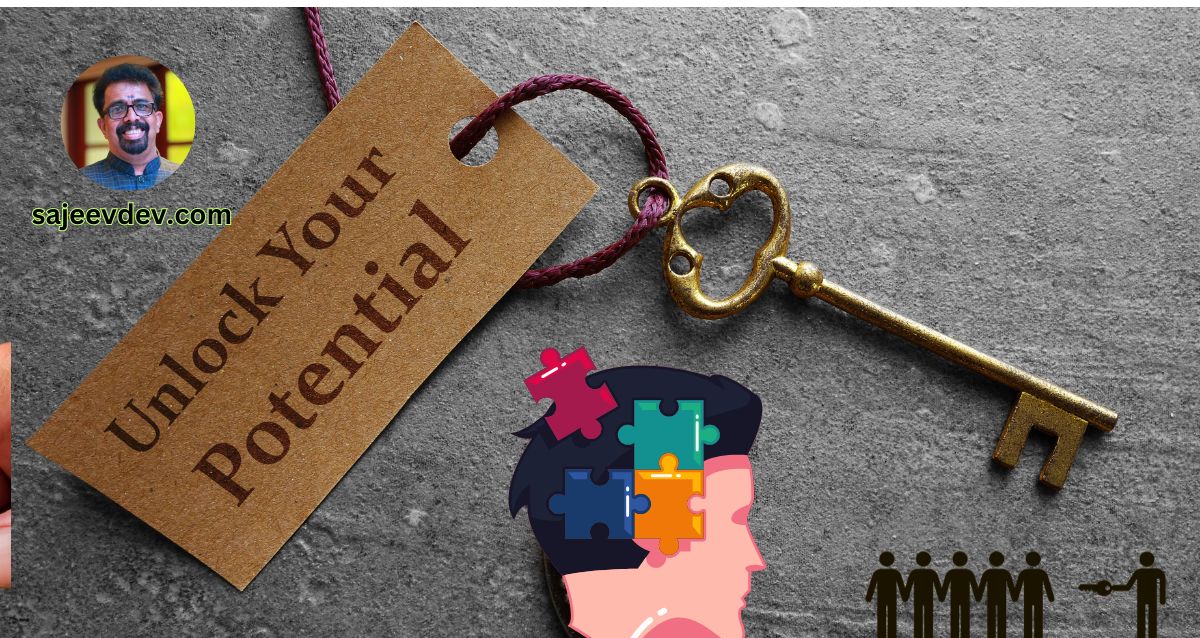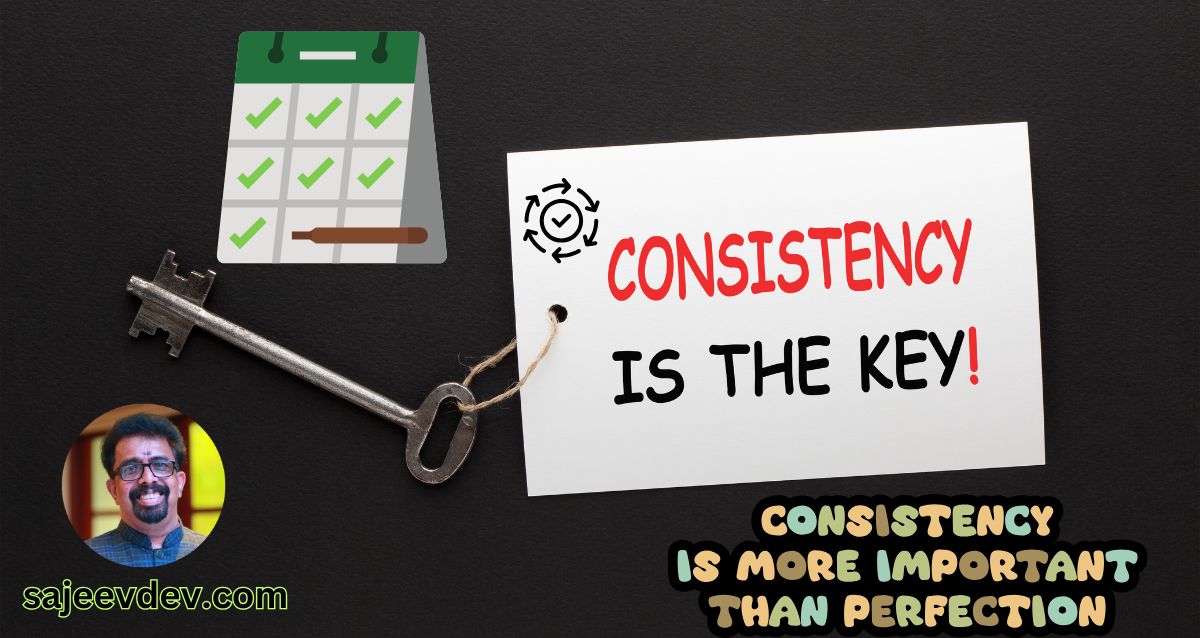Investing in oneself is a multifaceted concept that encompasses various activities and efforts aimed at personal and professional growth
Investing in oneself is a multifaceted concept that encompasses various activities and efforts aimed at personal and professional growth. At its core, self-investment refers to the deliberate choices made to enhance one’s skills, knowledge, well-being, and overall quality of life. It is a commitment to nurturing one’s potential, which can manifest through education, skill development, physical health, and emotional well-being. The prioritization of self-investment in today’s fast-paced world is essential, as it lays the groundwork for a fulfilling and productive life.
The benefits of self-investment are far-reaching and contribute significantly to long-term success. For instance, engaging in continuous learning through courses or workshops equips individuals with the skills necessary to navigate complex job markets and excel in their careers. Furthermore, self-investment often fosters a sense of accomplishment and boosts confidence, which can lead to better job performance and increased job opportunities. Mental health is another vital area where self-investment plays a crucial role. Activities such as mindfulness practices, therapy, or pursuing hobbies can greatly enhance emotional resilience and overall well-being.
Moreover, investing in oneself can lead to greater personal satisfaction as individuals pursue endeavors that ignite their passions and interests. This journey often involves stepping outside of one’s comfort zone, which can result in transformative experiences and broaden one’s perspective. The process of self-discovery through self-investment not only improves one’s life quality but also positively impacts relationships and social interactions.
Ultimately, self-investment is a powerful approach for reaping long-term benefits that transcend mere financial returns. By prioritizing personal development, individuals set the stage for a richer, more rewarding life filled with opportunities for growth and fulfillment.
The Importance of Time Management
Effective time management is a cornerstone of self-investment, serving as both a framework for personal development and a means to maximize productivity. In a fast-paced world, individuals often find it challenging to balance their daily responsibilities with the pursuits that contribute to their growth. By adopting strategic approaches to manage time, one can prioritize personal development activities while ensuring that essential tasks are attended to. This balancing act is vital for achieving long-term goals and enhancing overall well-being.
One effective technique for improving time management is the Pomodoro Technique, which involves breaking work into intervals, typically 25 minutes in length, followed by a short break. This method helps maintain focus and prevents burnout, making it easier to engage in tasks related to self-care and learning. Additionally, incorporating regular breaks into a busy schedule allows individuals to reflect on their progress, ensuring they remain aligned with their development objectives.
Another valuable approach is time-blocking, which entails dedicating specific time slots to different activities throughout the day. By allocating particular periods for personal development, self-care, and essential duties, you create a structured routine that fosters accountability and prioritization. This increased structure helps ensure that time is spent effectively, limiting distractions and encouraging a more disciplined approach to achieving personal and professional goals.
Furthermore, setting clear and achievable goals is crucial for successful time management. Establishing both short-term and long-term objectives allows individuals to pinpoint the activities that will yield the most significant results in their personal development journey. By regularly reviewing these goals and adjusting them as needed, one can maintain momentum and continue investing in themselves, ensuring that they cultivate the skills and knowledge necessary for future success.
Investing in Knowledge and Skills
Continuous learning and skill development are essential components of personal and professional growth. In today’s rapidly changing job market, the importance of acquiring new knowledge and skills cannot be overstated. Individuals seeking to advance their careers or pivot to new fields must prioritize their education, recognizing that investing in oneself often yields the best returns.
There are numerous pathways to acquire knowledge and enhance skill sets. Formal education, such as enrolling in degree programs, continues to be a popular choice. Higher education institutions offer structured learning environments that not only provide foundational knowledge but also foster critical thinking and problem-solving abilities. However, traditional education is not the only avenue available.
Online courses have emerged as a flexible and accessible alternative for many learners. Platforms like Coursera, Udemy, and LinkedIn Learning offer a vast array of courses covering diverse subjects. These courses allow individuals to tailor their learning experience to their schedule and interests, making knowledge acquisition more convenient. Similarly, workshops and seminars provide opportunities for hands-on learning and real-world application of skills, often led by industry experts privileged with extensive experience.
Reading remains one of the most effective methods for self-education. Books, academic journals, and articles are invaluable resources that present theories, case studies, and insights from thought leaders across various fields. Staying updated with the latest literature in one’s industry can not only enhance an understanding of the current landscape but also inform strategic career decisions.
Ultimately, the potential career benefits of expanding one’s skill set through continuous learning are profound. Individuals who actively pursue knowledge development are often regarded as more versatile employees, thereby increasing their employability and career advancement opportunities. By recognizing the value of educational investments, professionals can position themselves for success in an ever-evolving job market.
Physical Fitness as an Investment
Investing in your physical fitness is one of the most significant contributions you can make toward your overall well-being and long-term success. Regular exercise plays a pivotal role not just in managing weight, but also in enhancing cardiovascular health, increasing muscle strength, and improving flexibility. Engaging in physical activity stimulates the production of endorphins, often referred to as ‘feel-good hormones,’ which can help alleviate stress and foster a positive mental state. This natural uplift can ultimately lead to increased productivity in both personal and professional realms.
Nutrition is another vital aspect of physical health that cannot be overlooked. Consuming a balanced diet rich in vitamins, minerals, and essential nutrients supports your body’s physiological functions, enhances energy levels, and bolsters the immune system. Foods high in antioxidants and healthy fats can help reduce inflammation and maintain cognitive function. By prioritizing a nutritious diet, you are essentially fueling your body and mind for peak performance, which yields significant returns in both health and productivity.
Additionally, adequate rest contributes enormously to physical fitness and overall health. Quality sleep allows your body to recover and rejuvenate, which is essential for maintaining high levels of energy and mental clarity throughout the day. Without sufficient rest, cognitive functions can decline, resulting in decreased focus and performance. Investing time in restorative practices, such as mindfulness or yoga, can also enhance your sleep quality, further augmenting your physical health.
Incorporating regular exercise, mindful eating, and ensuring proper rest into your lifestyle creates a solid foundation for your physical fitness. The benefits are multifaceted: improved mental clarity, sustained energy levels, enhanced productivity, and even increased longevity. By viewing physical fitness as a crucial investment, you position yourself to live a healthier, more fulfilling life.
Emotional and Mental Well-being
Investing in emotional and mental well-being is paramount in today’s fast-paced world. Mental health plays a critical role in shaping our behaviors, decisions, and overall quality of life. When we prioritize our mental health, it enhances not only our personal relationships but also our productivity in professional settings. This investment can manifest through various practices that support emotional resilience and mental clarity.
One effective approach is mindfulness, a practice grounded in being present and fully engaged with the moment. Mindfulness techniques, such as meditation and deep-breathing exercises, are proven to reduce stress and anxiety while improving focus and cognitive function. By incorporating mindfulness into daily routines, individuals can develop a greater awareness of their thoughts and feelings, allowing for improved emotional regulation and decision-making abilities.
Another valuable method is therapy, which offers a structured environment where individuals can explore their emotions and thoughts freely. Engaging with a mental health professional can provide insights into personal challenges and growth opportunities. Therapy also equips individuals with coping strategies that can be applied in both personal and professional contexts, promoting emotional intelligence that is imperative for effective communication and teamwork.
Additionally, self-reflection is a vital component of emotional investments. Taking time to assess one’s experiences, emotions, and reactions enables individuals to understand their behavioral patterns and motivations. This process fosters self-awareness, which is essential for personal development. A well-rounded individual is more adept at navigating challenges, facilitating enhanced productivity and success in various aspects of life.
Ultimately, the connection between mental well-being and productivity cannot be overstated. A healthy mindset enables clearer critical thinking, creativity, and resilience when faced with adversity, all of which are fundamental to achieving both personal and professional goals.
Building Strong Relationships
Investing in relationships is a fundamental aspect of personal growth and fulfillment. The connections we nurture with others can significantly influence our emotional well-being and overall happiness. Surrounding ourselves with supportive and positive individuals fosters an environment where we can thrive, both personally and professionally. Strong relationships provide us with encouragement, motivation, and valuable perspectives that can aid in self-discovery and growth.
To cultivate these beneficial relationships, it is essential to engage actively with those around us. This can begin with maintaining regular communication through calls, texts, or face-to-face meetings. Actively listening and showing genuine interest in the lives of others can deepen these bonds and create trust. When friends or colleagues feel valued, they are more inclined to return that appreciation and support, creating a mutually rewarding social dynamic.
Networking, both in professional and social contexts, serves as a powerful tool for forging new connections. Participating in community events, workshops, or online forums related to one’s interests or career can expose individuals to like-minded people. These interactions not only expand our circles but can also open doors to new opportunities and experiences that contribute to personal development.
Moreover, nurturing relationships often involves being proactive in offering help or support to others. Acts of kindness and empathy can strengthen existing connections and encourage reciprocated support when it is needed. Personal growth is often accelerated in an environment filled with encouragement, respect, and collaborative spirit.
Ultimately, investing time and energy in building strong relationships can yield remarkable returns. These connections enhance one’s life experience and empower individuals to navigate challenges more effectively while achieving their personal and professional goals.
Financial Literacy and Investment
Financial literacy is a crucial skill that empowers individuals to make informed and effective decisions regarding their money. It encompasses a range of knowledge, including budgeting, saving, investing, and understanding financial instruments. By equipping oneself with this knowledge, individuals can better navigate their financial futures, ultimately leading to greater personal growth and stability.
One of the foundational elements of financial literacy is budgeting. Creating a budget allows individuals to track their income and expenses, ensuring they live within their means. This process encourages discipline and helps identify areas where spending can be reduced, allowing for increased savings. Budgeting serves as the blueprint for financial success, as it highlights the importance of allocating resources efficiently to meet both short-term needs and long-term goals.
Saving is another key component of financial literacy. It involves setting aside a portion of one’s income regularly to build an emergency fund or prepare for future investments. The power of saving lies in the habit it creates; individuals learn to prioritize their financial health and plan for unforeseen expenses. Additionally, exploring various savings vehicles, such as high-yield savings accounts or certificates of deposit, can further enhance one’s savings potential.
Investing, the next step in the financial journey, offers the opportunity to grow wealth over time. Understanding different investment vehicles—including stocks, bonds, and mutual funds—is essential for making strategic decisions. Individuals should aim to grasp the risks and rewards associated with each investment type. Diversification, the practice of spreading investments across various asset classes, is a fundamental strategy to mitigate risk while striving for potential returns.
In summary, financial literacy is not only about managing money but also about empowering oneself to invest in a brighter future. By honing budgeting skills, cultivating a saving mentality, and embracing sound investment strategies, individuals can achieve personal growth and financial independence.
Setting Goals and Tracking Progress
In the journey of self-investment, goal setting serves as a foundational component. Establishing clear and achievable goals allows individuals to direct their efforts in a focused manner. A widely recognized method for effective goal setting is the SMART criteria, which emphasizes that goals should be Specific, Measurable, Achievable, Relevant, and Time-bound. By utilizing this framework, individuals can create well-defined objectives that not only resonate with their personal aspirations but also pave the way for systematic progress.
To illustrate, a goal such as “I want to improve my skills” could be refined into “I will complete a professional development course in my field by the end of the quarter.” This transformation into a SMART goal provides clarity and enhances the likelihood of successful attainment. Alongside the formulation of SMART goals, it is essential to devise actionable plans that delineate the steps required to achieve these objectives. These plans act as a roadmap, outlining specific tasks and timelines that guide individuals in their self-investment journey.
Equally important to setting goals is the practice of tracking progress. Monitoring achievements allows individuals to evaluate their advancement toward their objectives and provides an opportunity to celebrate small victories along the way. Utilizing various tracking methods, such as journals, digital tools, or progress charts, can significantly enhance motivation and accountability. Additionally, maintaining adaptability is crucial; individuals may find it necessary to adjust their goals or plans based on their experiences and changing circumstances. This iterative process of goal refinement ensures that the self-investment journey remains aligned with one’s evolving aspirations.
Ultimately, setting SMART goals and diligently tracking progress cultivates a structured path toward personal growth and self-improvement. This disciplined approach to goal setting and progress monitoring significantly increases the potential for long-term success in one’s self-investment efforts.
Long-term Benefits of Self-Investment
Investing in oneself offers an array of long-term benefits that can significantly enhance overall well-being and success throughout life. One of the most profound aspects of self-investment lies in the continuous cycle of self-improvement it promotes. When individuals commit to their personal growth—be it through education, skill development, or even wellness practices—they create a foundation for ongoing progress. This commitment not only fosters a sense of accomplishment but also drives motivation, leading to increased aspirations and achievements over time.
Furthermore, as individuals improve their skills and expand their knowledge, they become more adaptable in both personal and professional environments. This versatility is crucial in today’s rapidly changing world, where the capacity to learn and evolve can make a significant difference in career opportunities and job security. By focusing on self-investment, individuals can position themselves as lifelong learners, making them more attractive to employers and increasing their ability to navigate career transitions effectively.
On a deeper level, self-investment also contributes to improved mental and emotional health. Engaging in activities that promote personal growth, such as attending workshops, pursuing hobbies, or practicing mindfulness, can lead to a greater sense of fulfillment and contentment. This, in turn, fosters enhanced relationships and more positive interactions with others, providing a support system that is essential for personal advancement. Investing time and resources into oneself cultivates resilience, equipping individuals to handle challenges with a constructive mindset.
Ultimately, viewing self-investment as a lifelong journey rather than a one-time endeavor ensures that individuals maximize their potential throughout their lives. By continuously focused on self-improvement and embracing new opportunities for growth, one can achieve not only success but also a profound sense of purpose and satisfaction. Such a commitment will undoubtedly yield the best return, transforming aspirations into lasting realities.



